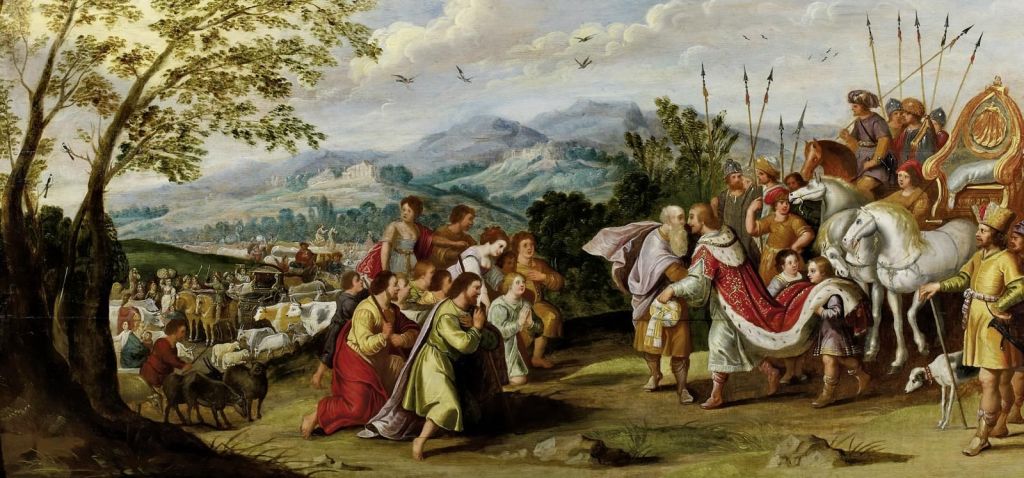
Originally preached at Messiah Evangelical Lutheran Church, East Setauket, New York.
My dear brothers and sisters in Christ:
How Joseph’s brothers must have felt coming before their brother again after the death of their father! Here they were in Egypt at the court of the pharaoh, where the brother they once sold into slavery out of jealousy was now the most powerful man in the entirety of the kingdom, second only to the pharaoh himself, and now that their father Jacob was dead, the only person in their family who might be able to forestall Joseph’s wrath against them was gone. Because Joseph had to hate them, right? Any reasonable person would. They’d sold him into slavery when he was young because they thought that he was full of himself. They thought that he thought he was better than they were. They wanted to get rid of him. So Joseph’s brothers hid him in a hole until the slavers came, and told their father, Jacob, that a wild animal had killed his son in order to hide their crime. And slavery wasn’t the only injustice that Joseph had suffered because of his brothers. Not long after Joseph was sold to the Egyptians, his mistress falsely accused him of forcing himself on her, and he was thrown into prison and kept there for years until his reputation for interpreting dreams secured his release and, miraculously, helped him gain the highest office in the kingdom. But all the years of injustice–all the horrible treatment and the violence that Joseph had likely suffered–wouldn’t he want revenge on his traitorous brothers for that? Now that their father Jacob was dead, wouldn’t he abandon the facade of love for them that he had shown and have his revenge? They wouldn’t blame him if he did.
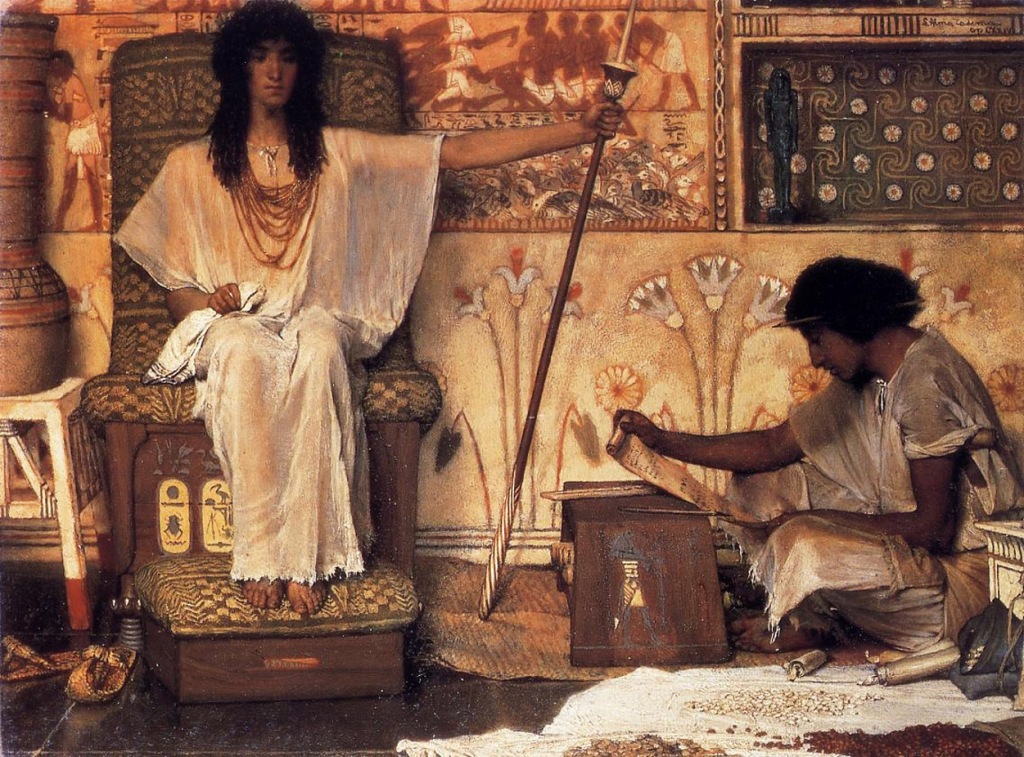
So what to do? They would have to lay themselves at their brother’s feet and implore him for his mercy. But would he listen to them, after all they had done? No, their word wasn’t worth much; they’d need another way to convince Joseph. The brothers were sure he would visit vengeance on their heads. They decided to tell him that their father wanted his sons to be at harmony, and that he had asked–no, that he commanded–his sons to tell Joseph to forgive his brothers for the evil they had done to him. Did Jacob actually ask his sons to do this? It’s hard to say–Jacob is not recorded saying it elsewhere, so perhaps the brothers put words in their dead father’s mouth in order to save their hides. But would it work?
Imagine the brothers’ surprise when Joseph speaks after hearing their plea. There was no need to fear! Who was Joseph to pass judgment over them? He wasn’t God. No, he said, “What you meant for evil, God meant for good!” All was forgiven; Joseph would care for his brothers and their people.
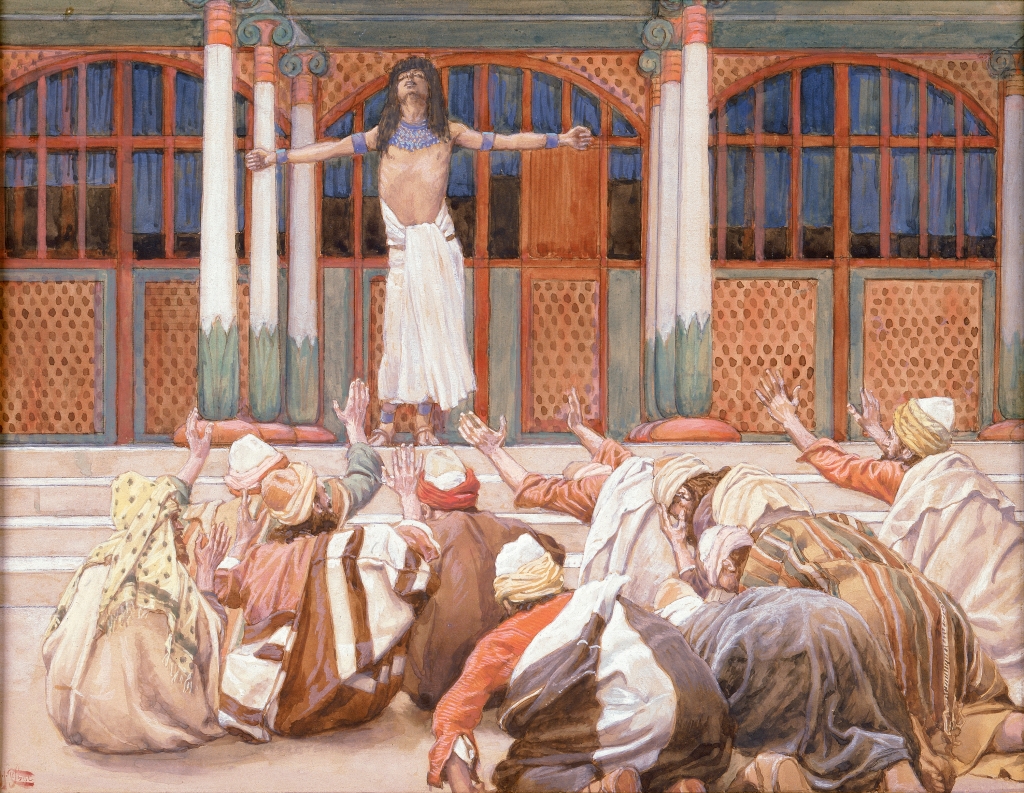
Now, you might expect this sermon to be about forgiveness, especially considering the additional focus of today’s Gospel lesson, where Jesus tells his disciples the parable of the unjust steward. Joseph forgives his brothers for essentially ruining his life, go and do likewise! Well, that’s not the tack I’m taking with this sermon. While I suppose it is a conclusion one can draw, that’s not really the lesson to take away from Genesis 50. Instead, let’s consider what Joseph tells his brothers:
“You meant evil against me, but God meant for good, to bring it about that many people should be kept alive, as they are today.”
When Joseph was sold into slavery by his brothers, he had no idea that the events that would set in motion would lead to his becoming the one who could save his family from starvation in the famine that hit Egypt and the land of Canaan. And likewise, his brothers had no idea that the brother they sold into slavery would save them. But that’s because we human beings cannot see the full scope of history. We cannot tell how one event will affect another, and we cannot tell what calamities will occur. But Joseph tells his brothers and tells us that, regardless of what happens, God is in control. Whatever evils happen in the world, God can, and does, use them for good.
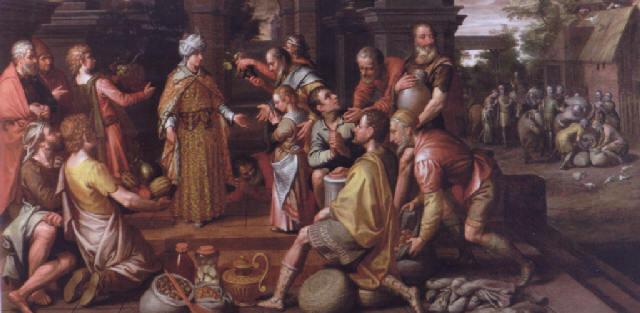
When we look around our world right now, the idea that God might be working things meant for evil for good seems laughable. There’s so much evil in the world today, so much chaos, so much sin. Natural disasters are raging. Here in the US, the entire west coast is on fire. People in the Gulf are reeling from hurricane damage. We are not even really fully recovered from the storm damage here in Long Island–I still dodge piles of timber on my way here every day. And throughout the world, the pandemic is still sickening and killing people. There’s increased violence in our cities; homes, businesses, and houses of worship have been destroyed by people who want to use societal problems as an excuse to sow chaos. Our governmental institutions fail in ensuring justice; we see far too many stories of people we’re supposed to trust failing us, either by misusing their power or by ignoring the duties entrusted to their offices. And then there’s the general human cruelty everywhere, as is written in Latin–homo homini lupus, “man is a wolf to man.” On Friday we commemorated the deaths of three thousand people here in New York, in Virginia, and in Pennsylvania at the hands of men serving a demoniac ideology. That same sort of violence continues today around the globe, and countless lives have been lost at the hands of such men. Looking at it all, we ask, where is God? Where is the good in all this? How is God working any of this evil for anyone’s good?
When Joseph reconciles with his brothers, he tells them “You meant evil against me, but God meant for good, to bring it about that many people should be kept alive, as they are today.” Joseph and his brothers did not know at the time that so many would be saved from starvation through God’s working of events. How could they see the work of his hand until events had come to pass that would reveal it? But Joseph had a gift for prophecy, and God had revealed much to him. Perhaps he meant more than just the immediate good brought about by his saving his family and others from famine, thanks to his being made governor of all Egypt.
Have any of you seen the science history television program called Connections? It was written and presented by a man named James Burke and details his theory of what he called “radical change.” Burke believes that nothing in the world happens in abstraction from anything else; that because something exists, its existence affects the entirety of the world around it, such that one technological innovation makes another possible even if there is no seemingly direct link between them. (In the second episode, he traces the chain of connections between the use of touchstones to test gold quality in 8th Century BC Lydia [current northwestern Turkey] and the advent of atomic energy–heady stuff!) Perhaps, God showed Joseph the outcome of the whole chain of events in his life like an episode of Connections, because a far greater good than the just the deliverance of Egypt and Canaan from famine came from Joseph’s being sold into slavery by his jealous brothers: the string of tragedies in Joseph’s life led to the deliverance of the whole world from sin. Joseph’s enslavement in Egypt made possible the chain of events that ultimately led to Jesus–the Exodus, the claiming of the Promised Land, the Kingdom of David, the Holy Family returning to Bethlehem–all of it extends from Joseph’s saving the family of Jacob. God worked all of these things from the very beginning, indeed, from before Adam. Remember how Jesus says “Before Adam was, I am”? God was in control of history then, and he is in control now. He has already written and realized the end of the story; it has already happened with Jesus’ death and resurrection, and everything that happens now happens, as it were, within the pages of a closed book. The Second Coming is at the end of it all, with the creation of the new heavens and the new earth. God wins. God has won. Sin, death, and hell have already come to nothing. What are indeed calamitous happenings in our lives are all within God’s plan. And while we don’t know the whole of his plan, or why we go through difficult seasons or periods of heartache or deep trouble, we do know that we can trust that the Lord will vindicate us in the end because he already has done so. And when they come our way, we can and ought to take them, not as opportunities to despair, but as opportunities to remember that our Lord has already won the battle and that we ought to trust him and the promises he has made to us by the cross. Our baptism in his name, the faith we have in his work, and our being fed with his body and blood all grant us this guarantee. Our God is the Lord of history. Whatever comes against us, we are his children through the covenant written in the blood of his Son, our Savior, and that means that everything will turn out all right. Brothers and sisters, take heart! Whatever evils sin, death, and the Devil mean for us, God has subverted them for our good, using the tools of evil (death, sin, illness, horror, and pain) against evil, to bring it about that many people should be made alive, as they are today! Amen.
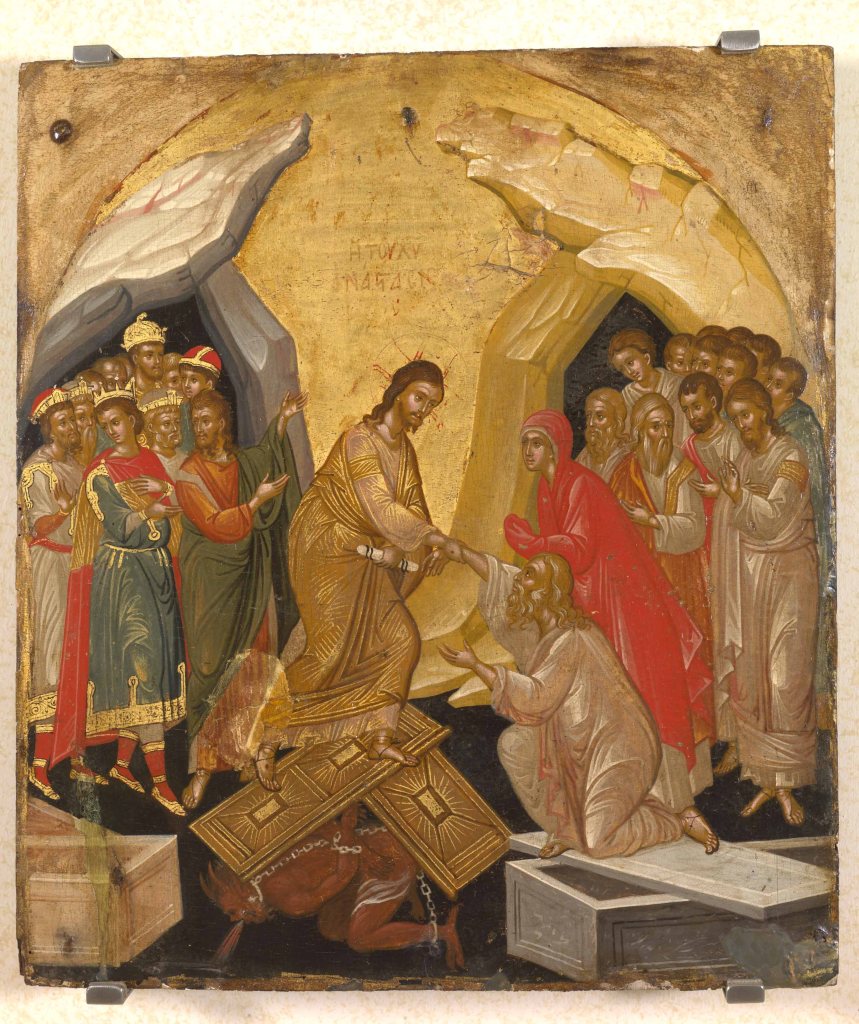
May the peace which surpasses all understanding, guard your hearts and minds in Christ Jesus our Lord. Amen.